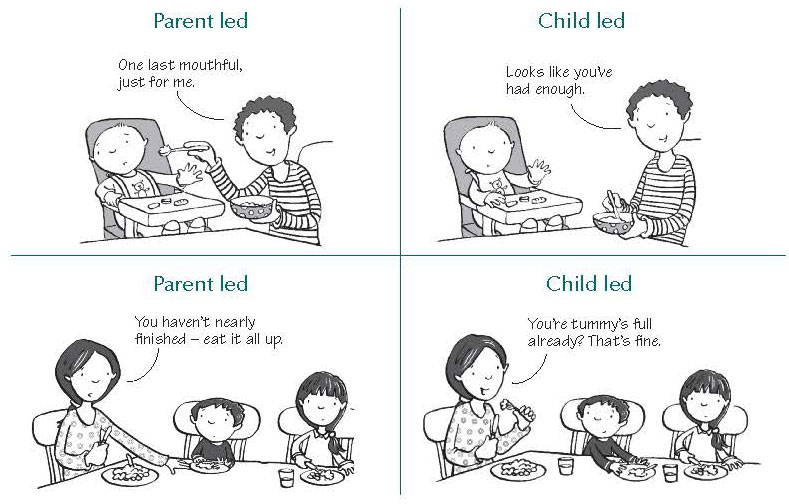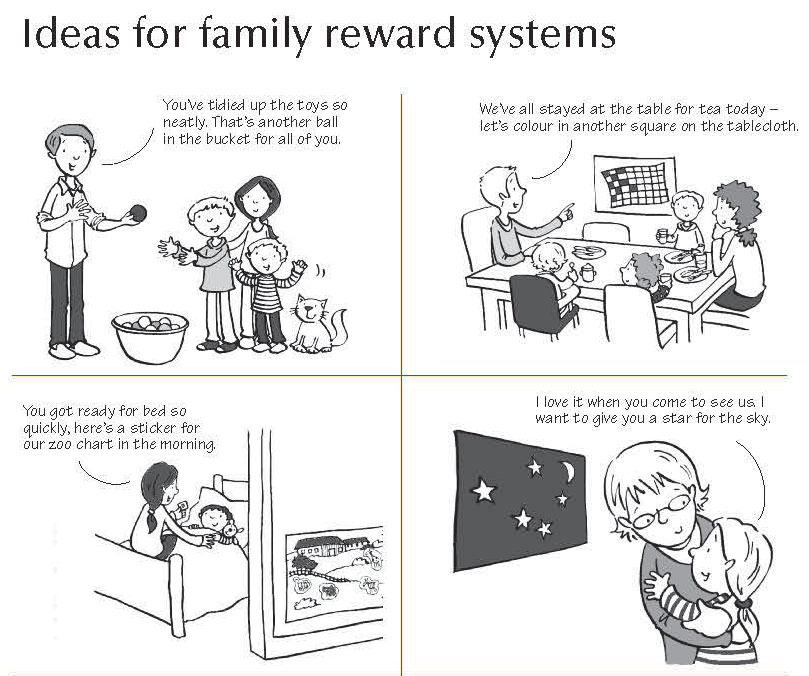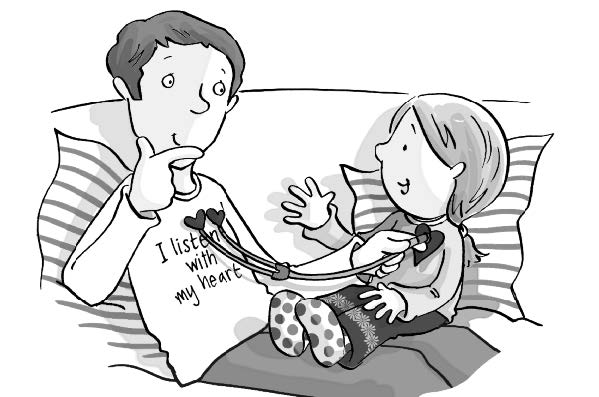Emotional Eating
Written by Candida Hunt, founder of HENRY (Health, Exercise and Nutrition for the Really Young) [caption id="attachment_326" align="alignright" width="300"] There is a strong natural connection between food and love - but this emotional relationship with food can become unhelpful, particularly if we struggle a bit with our weight.[/caption] Giving our children a great start in life involves every aspect of what we provide for them. Here I’ll look at how two of these aspects interact: love, and food. Nature has wisely made the act of feeding be part of the way we establish the emotional bond between mother and baby. Newborn creatures need to feed to survive, so it’s a good idea for mothers to enjoy it too. This link between food and love stays with us. When we start babies on solids, we’re delighted when they like the food we offer them, and can feel a bit rejected if they spit out the food (as they often do, to begin with) or throw it on the floor. And it’s not only with little ones that this is true. If you have friends round for a meal, and nobody wants a second helping, there’s a moment’s dismay. If they don’t like my food, do they like me?
There is a strong natural connection between food and love - but this emotional relationship with food can become unhelpful, particularly if we struggle a bit with our weight.[/caption] Giving our children a great start in life involves every aspect of what we provide for them. Here I’ll look at how two of these aspects interact: love, and food. Nature has wisely made the act of feeding be part of the way we establish the emotional bond between mother and baby. Newborn creatures need to feed to survive, so it’s a good idea for mothers to enjoy it too. This link between food and love stays with us. When we start babies on solids, we’re delighted when they like the food we offer them, and can feel a bit rejected if they spit out the food (as they often do, to begin with) or throw it on the floor. And it’s not only with little ones that this is true. If you have friends round for a meal, and nobody wants a second helping, there’s a moment’s dismay. If they don’t like my food, do they like me?
Emotional Eating
This emotional relationship with food can become unhelpful, particularly if we struggle a bit with our weight.
Our bodies prompt us to eat when we are physically hungry; sometimes we also feel we want to eat when we’re emotionally hungry. For example, do you ever eat when you’re bored, upset or lonely, or because you’ve had a tough day and need a treat? Most of us do. And when we’re eating for comfort, are we more likely to reach for a carrot – or for a biscuit, a bun, a chocolate bar? No prizes for the answer to this one! We’ll be doing our children a big favour if we can manage not to give some foods an “emotional loading”. There are plenty of simple – though not always easy – ways we can do this:
- Spot your own habits around comfort eating; when you feel like meeting an emotional need with food, pause to find out what the real need is, and see if you can meet it another way.
2. Follow your child’s lead when they’ve had enough to eat; we may train them to overeat if we show too much approval when they “eat up”.
 3. Give all food equal status, rather than using one food to persuade a child to eat another; e.g. Saying, “If you eat your broccoli you can have some jelly,” makes the veg seem even less desirable and the jelly even more desirable.
3. Give all food equal status, rather than using one food to persuade a child to eat another; e.g. Saying, “If you eat your broccoli you can have some jelly,” makes the veg seem even less desirable and the jelly even more desirable.
4. Avoid using food as rewards – for behaving well, or being brave about a grazed knee, perhaps – or as bribes like, “If you stay with me in the supermarket I’ll buy you some sweets”. 5. Eat small quantities every now and again of what are usually regarded as “treat” foods, and as part of a meal so they don’t become special. 6. For celebrations such as birthdays, there’s no need to go overboard: make sure the occasion is lots of fun, and offer plenty of healthy food as well as the birthday cake. 7. If you always take Grandma a box of chocolates, what are you teaching your child – and what could you/your children take instead to show your affection? These are just some of the ways we can make sure food is used for what it’s actually for: nourishing our bodies. This isn’t to say we can’t enjoy what we eat, just that it’s helpful for us and for our families if we don’t use it as an emotional prop.
5. Eat small quantities every now and again of what are usually regarded as “treat” foods, and as part of a meal so they don’t become special. 6. For celebrations such as birthdays, there’s no need to go overboard: make sure the occasion is lots of fun, and offer plenty of healthy food as well as the birthday cake. 7. If you always take Grandma a box of chocolates, what are you teaching your child – and what could you/your children take instead to show your affection? These are just some of the ways we can make sure food is used for what it’s actually for: nourishing our bodies. This isn’t to say we can’t enjoy what we eat, just that it’s helpful for us and for our families if we don’t use it as an emotional prop.
Tuning in
If we aren’t using food to help us out emotionally, we need to have other ways of soothing our children’s upsets. Tuning in to how someone else feels is an ability we’re all born with, and one we can become skilful at using. Just listening with an open heart is a great gift to another person. When we do this with our children we help them feel loved and understood, and we’ll also be helping them learn the words they’ll need to tell others how they feel.  We’re more likely to reach for emotionally boosting foods when we’re not managing to boost our batteries in other ways, so making sure we notice how we are feeling too, and find time to look after ourselves as well as the family (a tall order, I know!) can make all the difference. ------------------------------------------------------------------------
We’re more likely to reach for emotionally boosting foods when we’re not managing to boost our batteries in other ways, so making sure we notice how we are feeling too, and find time to look after ourselves as well as the family (a tall order, I know!) can make all the difference. ------------------------------------------------------------------------  Candida Hunt is the founder of HENRY – which stands for Health, Exercise and Nutrition for the Really Young. HENRY is an award-winning charity that is passionate about babies and young children having a healthy start in life. That means helping the whole family make positive changes to their lifestyle and building healthier communities. With a national reputation for delivering responsive packages of support that really make a difference, HENRY works with over 60 local partners, including health trusts, local authorities, public health departments, voluntary organisations and universities to help parents gain the confidence, knowledge and tools – as well the parenting skills – they need to adopt a healthier and happier family lifestyle. If you’d like to know more about these and other ways to give your children a great start in life, you might enjoy reading Candida’s new book, Healthy Families: Right from the Start with HENRY. It’s full of ideas and tips, other parents’ experiences and lots of illustrations. The book is available at a great discount through the HENRY website, www.henry.org.uk.
Candida Hunt is the founder of HENRY – which stands for Health, Exercise and Nutrition for the Really Young. HENRY is an award-winning charity that is passionate about babies and young children having a healthy start in life. That means helping the whole family make positive changes to their lifestyle and building healthier communities. With a national reputation for delivering responsive packages of support that really make a difference, HENRY works with over 60 local partners, including health trusts, local authorities, public health departments, voluntary organisations and universities to help parents gain the confidence, knowledge and tools – as well the parenting skills – they need to adopt a healthier and happier family lifestyle. If you’d like to know more about these and other ways to give your children a great start in life, you might enjoy reading Candida’s new book, Healthy Families: Right from the Start with HENRY. It’s full of ideas and tips, other parents’ experiences and lots of illustrations. The book is available at a great discount through the HENRY website, www.henry.org.uk.